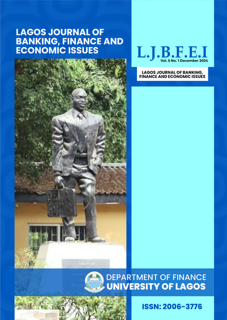Finance Act and Tax Revenue in Nigeria
Abstract
Tax revenue contributed significantly to GDP in developed economies, but this is less evident in Nigeria and many sub-Saharan countries, due to ineffective tax collection. However, tax remained a reliable revenue source for government funding. This study examined the impact of the Finance Act on tax revenue in Nigeria. An ex post facto research design was employed. Quarterly time series data were collected on oil tax revenue and non-oil tax revenue from the Central Bank of Nigeria (CBN) and the Federal Inland Revenue Service (FIRS) statistical bulletins for the period between 2016Q1-2023Q4. The periods were divided into pre- and post-finance acts. 2016Q1 --2019Q4 represented pre finance act, while 2020Q1- 2023Q4 represented post finance act. Tax revenue is the dependent variable proxying oil tax revenue and non-oil tax revenue, while the Finance Act is the independent variable. Descriptive and inferential tools were employed and the data was analyzed using Mann-Whitney U test to examine the existence or otherwise of the statically significant difference in each of the components of dependent variable. The outcome of the test showed that there is no significant deference in oil tax between pre and post finance act. However, there is significant difference in non- oil tax between pre and post finance act period. The study recommended that government should expand the tax base and ensure effective utilization of revenue of tax.

